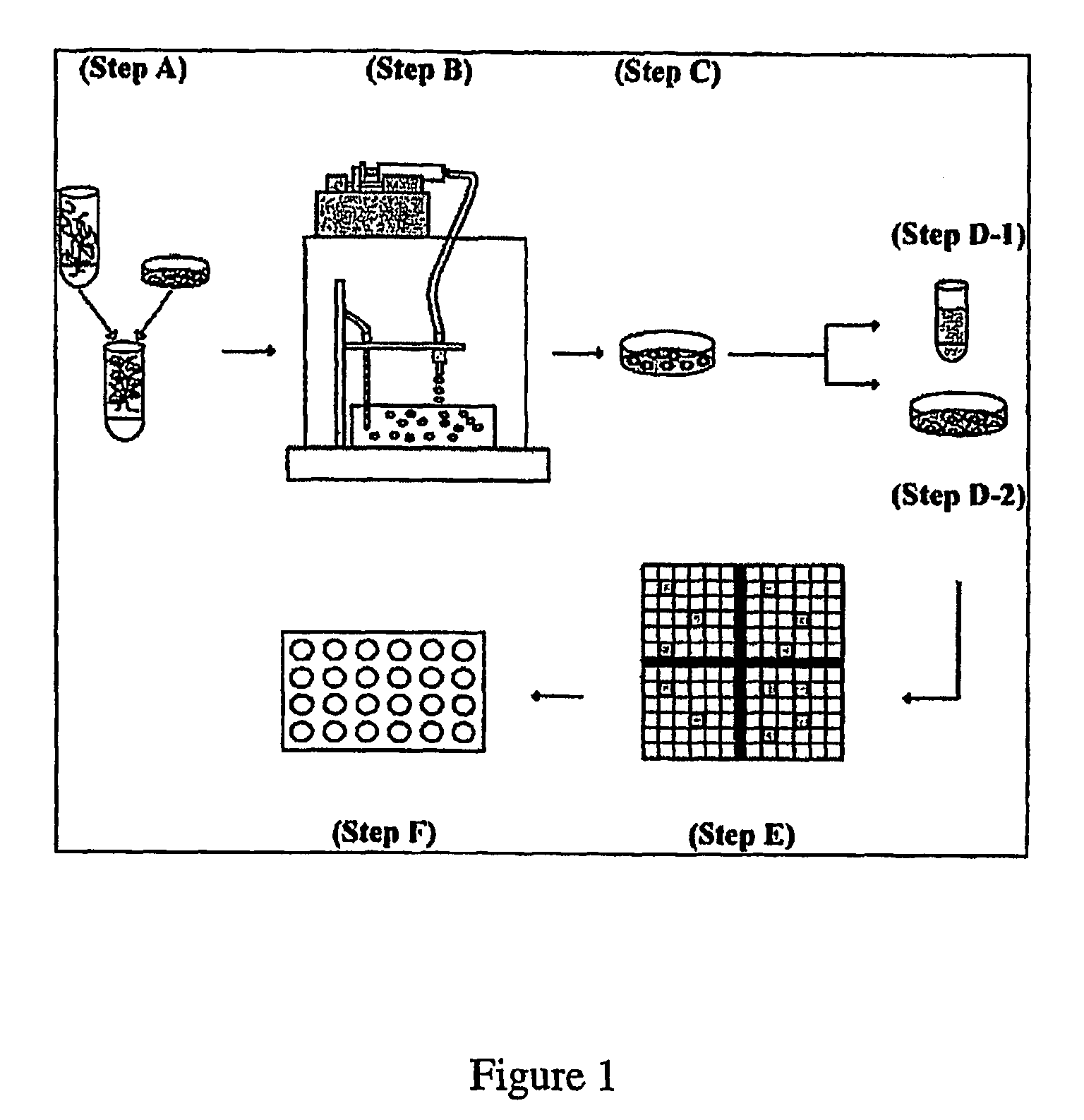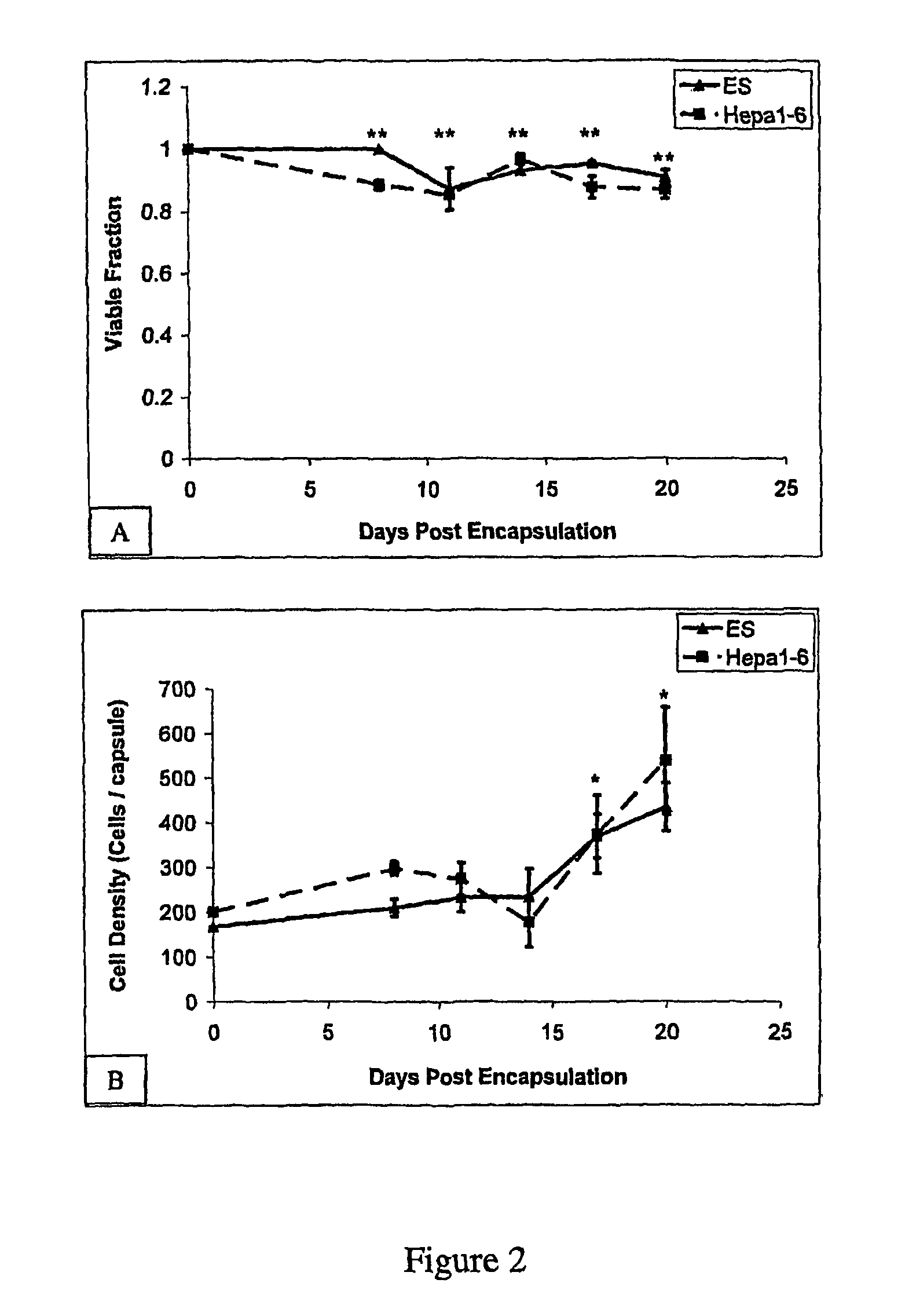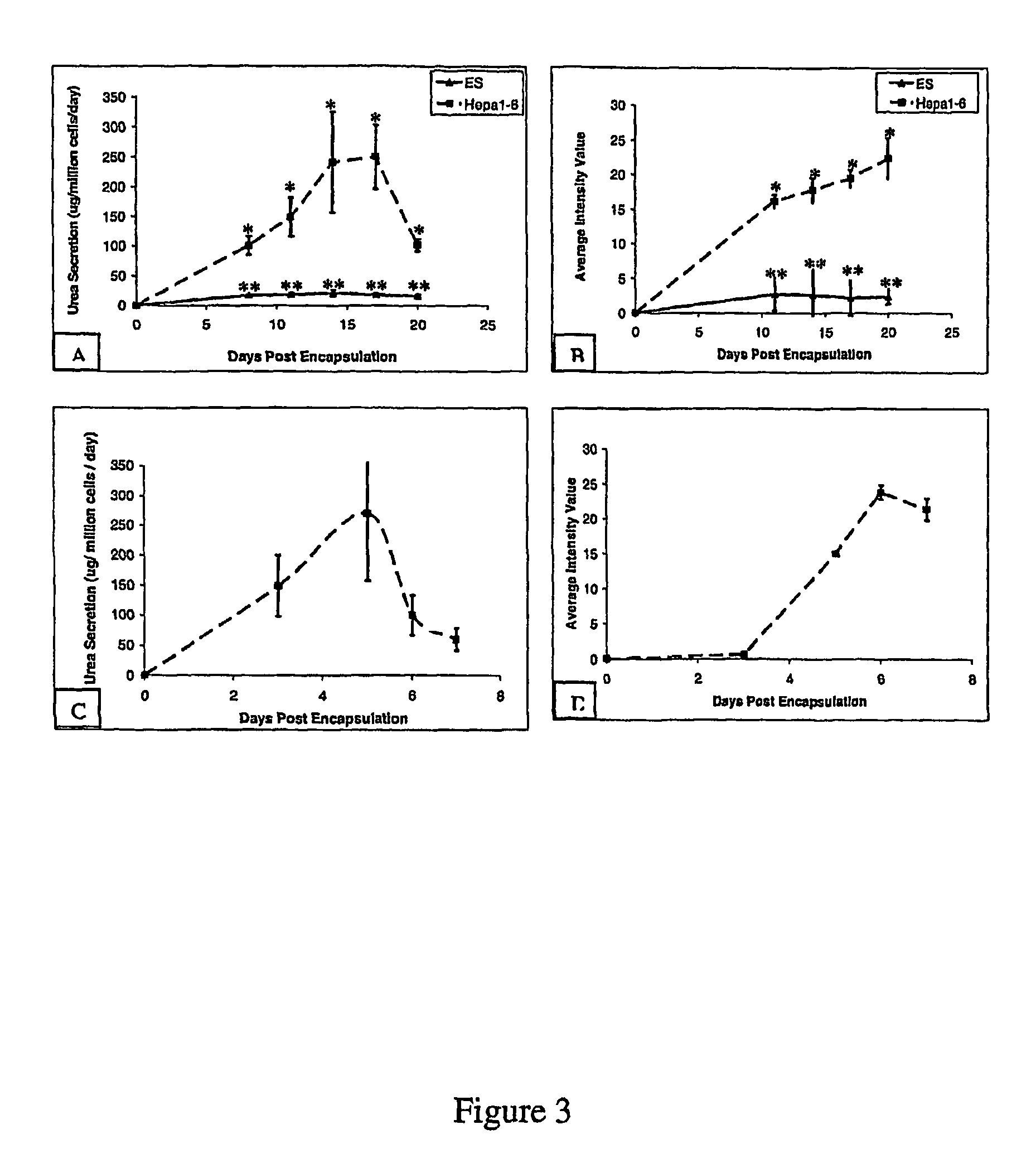Alginate polyelectrolyte encapsulation of embryonic stem cells
a technology of embryonic stem cells and alginate polyelectrolyte, which is applied in the field of alginate polyelectrolyte microencapsulation of cells, can solve the problems of limited development of effective tissue-engineered artificial liver devices, generated from autogenic or allogeneic cells, and prior techniques that have been limited in a number of ways
- Summary
- Abstract
- Description
- Claims
- Application Information
AI Technical Summary
Benefits of technology
Problems solved by technology
Method used
Image
Examples
example 1
Materials and Methods
Cell Culture
[0085]All cell cultures were incubated in a humidified 37° C., 5% CO2 environment. The ES cell line D3 (ATCC, Manassas, Va.) was maintained in an undifferentiated state in T-75 gelatin-coated flasks (Biocoat, BD-Biosciences, Bedford, Mass.) in Knockout Dulbecco's modified Eagles medium (Gibco, Grand Island, N.Y.) containing 15% knockout serum (Gibco), 4 mM L-glutamine (Gibco), 100 U / ml penicillin (Gibco), 100 U / ml streptomycin (Gibco), 10 μg / ml gentamicin (Gibco), 1000 U / ml ESGRO (Chemicon, Temecula, Calif.), 0.1 mM 2-mercaptoethanol (Sigma-Aldrich, St. Louis, Mo.). ESGRO contains leukemia inhibitory factor (LIF) which prevents embryonic stem cell differentiation. Every 2 days, media was aspirated and replaced with fresh media. Cultures were split and passaged every 6 days, following media aspiration, washing with 6 ml of phosphate buffered solution (PBS) (Gibco). Cells were detached following incubation with 3 ml of trypsin (Gibco) for three minutes...
example 2
Encapsulation System
[0096]An alginate-PLL murine embryonic stem cell encapsulation system was developed in order to investigate the feasibility of regulating hepatocyte differentiation within a controlled microenvironment and recovering differentiated cells from intracapsular culture. One embodiment of the encapsulation system is shown in FIG. 1. Briefly, embryonic stem cells were detached from culture dishes and mixed with various concentrations of dissolved alginate (Step A). The alginate cell suspension mixture was transferred to a 10 ml syringe within an electrostatic bead generator (Step B), which was used to control bead size through an applied voltage (6.5 kV). The alginate cell suspension was extruded into a bath of 100 mM calcium chloride and the beads were subsequently coated in a poly-L-lysine solution to increase bead durability. The encapsulated cell population was then cultured for 20 days, either in the presence or absence of LIF (Step C). On days 8, 11, 14, 17 and 20...
example 3
Assessment of Biocompatibility
[0097]Initial experiments were designed to determine the biocompatibility of alginate-PLL microencapsulation using both Hepa1-6 murine hepatoma cells and undifferentiated murine embryonic D3 cells. Immediately following encapsulation, beads were stained with calcein / ethidium homodimer, imaged, and the number of viable cells within the beads determined. On average, the percent viability was reduced minimally from 98% to 95%, indicating that the encapsulation process caused little cell damage. The effect of depolymerization and recovery on cell viability was also assessed.
[0098]The results are shown in FIG. 2 (A and B). In these experiments, ES cells were encapsulated in 2.0% w / v alginate, at a cell seeding density of 5×106 cells / ml, and cultured in Knockout DMEM containing ESGRO to prevent differentiation; Hepa 1-6 cells were encapsulated in 2.0 w / v alginate, at a cell seeding density of 5×106 cells / ml, and cultured in DMEM. In FIG. 2, each data point re...
PUM
| Property | Measurement | Unit |
|---|---|---|
| bead size | aaaaa | aaaaa |
| voltage | aaaaa | aaaaa |
| size | aaaaa | aaaaa |
Abstract
Description
Claims
Application Information
 Login to View More
Login to View More - R&D
- Intellectual Property
- Life Sciences
- Materials
- Tech Scout
- Unparalleled Data Quality
- Higher Quality Content
- 60% Fewer Hallucinations
Browse by: Latest US Patents, China's latest patents, Technical Efficacy Thesaurus, Application Domain, Technology Topic, Popular Technical Reports.
© 2025 PatSnap. All rights reserved.Legal|Privacy policy|Modern Slavery Act Transparency Statement|Sitemap|About US| Contact US: help@patsnap.com



